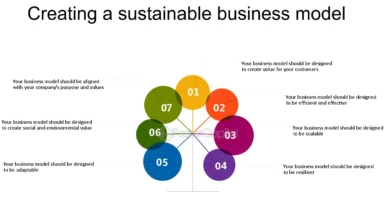In today’s fast-paced digital world, having a reliable internet connection is essential for any business. Whether you run a small startup or a large corporation, business broadband is vital for maintaining efficiency, communication, and customer satisfaction. This article delves into business broadband, its importance, different types, and how to choose the right plan for your needs.
What is Business Broadband?
Business broadband refers to high-speed internet services designed specifically for businesses. Unlike residential broadband, which is often slower and comes with usage caps, business broadband provides faster speeds, more data, and excellent reliability. It’s engineered to meet the demands of multiple users and devices within a commercial environment.
Key Features of Business Broadband
- Higher Speeds: Business broadband typically offers faster download and upload speeds, allowing for the smooth operation of applications and tools critical for business operations.
- Dedicated Connection: Many business broadband plans provide a dedicated line, ensuring your internet connection is stable and less prone to disruptions caused by high traffic.
- Static IP Addresses: Businesses often benefit from static IP addresses, which help host websites, email servers, and remote access.
- Better Support: Business broadband plans usually include enhanced customer support, which ensures that issues are resolved quickly to minimize downtime.
Why is Business Broadband Important?
Having a robust business broadband connection is crucial for several reasons:
Enhances Productivity
With a reliable broadband connection, employees can easily access cloud services, communicate via video conferencing, and transfer large files without interruptions. This seamless connectivity improves collaboration and productivity.
Supports Growth
As your business grows, so do your internet needs. Business broadband can scale up to accommodate increased bandwidth requirements, ensuring your operations run smoothly as you expand.
Boosts Customer Satisfaction
In a world where customer service can make or break a business, having a reliable internet connection is vital for customer support teams. Quick response times and access to information can significantly enhance the customer experience.
Enables Remote Work
Remote work is increasingly common in the modern workplace. Business broadband allows employees to work from anywhere with a reliable internet connection, promoting flexibility and work-life balance.
Types of Business Broadband Connections
When it comes to choosing the right business broadband, several types are available, each with its unique benefits:
ADSL (Asymmetric Digital Subscriber Line)
- Speed: Typically offers download speeds of up to 24 Mbps.
- Best For: Small businesses with lower bandwidth needs.
Fiber Optic Broadband
- Speed: Provides significantly higher speeds, often exceeding 1 Gbps.
- Best For: Medium to large businesses that require fastInternetle Internet for multiple users and devices.
Cable Broadband
- Speed: Offers speeds between 10 Mbps to 500 Mbps.
- Best For: Businesses in urban areas need high speeds but don’t require fiber optics.
Leased Line
- Speed: Provides a dedicated line with symmetrical speeds (equal upload and download).
- Best For: Large businesses and enterprises that need the utmost reliability and speed.
How to Choose the Right Business Broadband Plan
Selecting the right business broadband plan can be daunting, but following these steps can simplify the process:
Assess Your Needs
- User Count: Determine how many employees use InternethInternetet.
- Usage Type: Identify what activities require the most bandwidth (video conferencing, large file transfers, etc.).
- Growth Plans: Consider your future needs as your business expands.
Compare Speeds
Look for providers that offer speeds aligned with your business needs. Higher speeds often translate to better performance, especially during peak usage.
Evaluate Service Providers
Research different internet service providers (ISPs) in your area. Pay attention to their reputation, customer service ratings, and connection reliability.
Review Contracts and Pricing
- Contract Length: Understand the terms of the contract, including any penalties for early termination.
- Hidden Fees: Be cautious of additional charges, such as installation fees or equipment rentals.
- Value for Money: Ensure the plan you choose offers a good balance of speed, support, and price.
Check for Additional Features
Consider plans that offer extra benefits, such as static IP addresses, priority support, and cybersecurity features. These can add significant value to your business broadband experience.
The Role of Business Broadband in Modern Companies
In today’s environment, where technology plays a crucial role in operations, business broadband is more than just an internet connection; it’s a lifeline. Here’s how it impacts various aspects of a business:
Communication
Business broadband facilitates seamless communication through emails, video calls, and instant messaging. Quick and efficient communication channels can improve teamwork and enhance client relationships.
Cloud Services
With the rise of cloud computing, businesses rely on broadband to access data and applications stored online. Business broadband ensures quick access to these resources, supporting efficient workflows.
Marketing and Sales
Digital marketing strategies often hit the Internet. A reliablInternetand connection allows businesses to run online campaigns, analyze data, and effectively engage with customers.
Security
Many business broadband providers offer enhanced security features, protecting sensitive business information from cyber threats. This is particularly important in an age where data breaches are increasingly common.
Common Challenges with Business Broadband
While business broadband offers numerous advantages, there can be challenges as well:
Reliability Issues
Even with the best providers, outages can occur. To maintain connectivity during downtime, it’s essential to have a backup plan in place, such as mobile hotspots.
Cost Considerations
Business broadband can be more expensive than residential plans. However, the investment often pays off in terms of productivity and customer satisfaction.
Choosing the Right Provider
Not all providers offer the same level of service. It’s vital to do thorough research to find a provider that meets your specific needs.
Conclusion
In conclusion, business broadband is an essential component of modern business operations. Its ability to enhance productivity, support growth, and improve customer satisfaction makes it a worthy investment. By understanding the different types of business broadband, assessing your needs, and choosing the right plan, you can ensure that your business stays connected and competitive in today’s digital landscape.
The Future of Business Broadband
As technology continues to evolve, the future of business broadband looks promising. Innovations like 5G technology and fiber optic advancements are set to enhance speed and reliability further. Embracing these changes will help businesses leverage broadband, ensuring they thrive in the ever-competitive market.
Ultimately, investing in quality business broadband isn’t just about speed; it’s about fostering an environment where innovation and efficiency can flourish. Make the right choice today, and watch your business soar to new heights!




